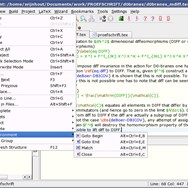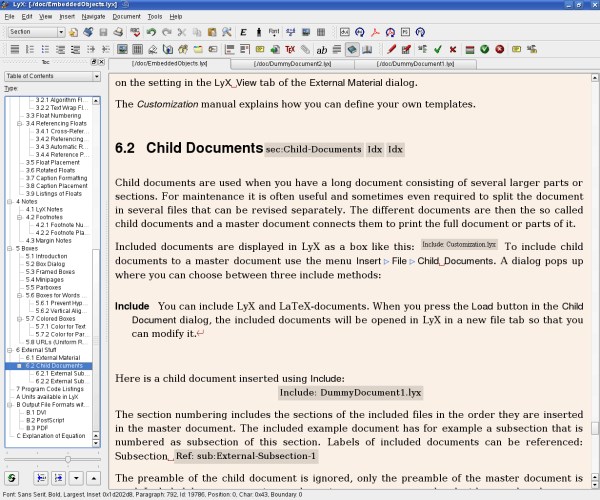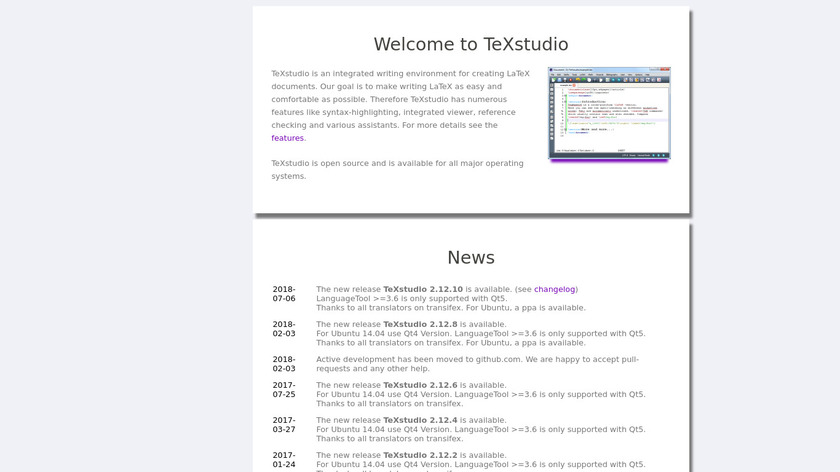

One of this tool’s best features is tracking the errors at the compilation stage. Once your document is ready using TeXmaker, you can extract it as PDF, HTML, or ODF File format. And you can streamline the documents into a separate section from “Structure View.” You can easily insert tables, math formulas, cross-references, pictures, and much more. For example, you can set up all the documents’ basic settings through the configuration window before working.Ī “Quick Start” window allows the user to set up the spell-checking and other document layouts. It is available on almost all platforms and also has excellent features. One of the most popular open-source and multi-platform tools is TeXmaker. And these tools follow a master-branch navigator, which is easy for the users to operate the documents. For example, there is a powerful GUI editor with support for auto-completion.
#TEXMAKER VS LYX FREE#
TeXnicCenter is a free and open-source LaTex editor with unique features. As it runs on Windows, it uses Microsoft’s MikTex typesetting distribution, making it easy for MS Word to process the LaTex documents.
#TEXMAKER VS LYX WINDOWS#
Supported Platforms: Web-based, Supports all major web browsers.Īnother great LaTex editor was developed for Windows OS. It also allows the users to collaborate with other members on your document and sync all the changes on Google Drive, Dropbox, or GitHub. Just choose any one design and start editing your content. There are technical paper layouts, journal articles, scientific magazines, and more in the templates.

This tool has useful features, and one of the best is its vast library of templates. It also has a free version, but you can only get one active project. Papeeria is an online LaTex editor where you need to pay $5/month to get ten active LaTex projects.

#TEXMAKER VS LYX MAC OS#
Supported Platform: Windows, Mac OS X, and Linux
#TEXMAKER VS LYX PDF#
But some of the features like Code folding, Inserting graphics or tables, interacting with external editors, and the PDF viewer makes this the best LaTex editor. However, many of the critical elements are missing in this tool. TeXworks has many other LaTex editor features like auto-correction, auto-completion, Unicode support, and others. There is an in-built PDF viewer, and it also controls an auto-synchronization feature. It offers a GUI-based approach and other advantages found in other tools. Labs supporting Ukrainian Scientists is an expansive list of labs and PIs offering support at this time.TeXworks is an open-source LaTex editor that works on multiple platforms.Science for Ukraine provides an overview of labs offering a place for researchers and students who are affected to work from, as well as offers of employment, funding, and accommodation:.Personally, I have found the messages of support from scientists everywhere to be truly heartfelt, and I would like to highlight some of the community initiatives I’ve seen here:

We also want to use our platform to highlight the response from the scientific community. I think it was designed to run on a 64K PDP-11, and had no way to expand easily as larger and larger address spaces became available. The version I was using was far too small to be useful I could not create all the necessary cross-references in the book until one of my co-authors, in a fit of rage, went into TeX and expanded a table size (it was written in Pascal, quite possibly the worst programming language ever foisted on an unsuspecting world). The best thing I can say about TeX is that I survived the experience (and have the scars to prove it). I do not program in assembly code, I do not use punched cards, and I do not use TeX, which is merely the most complex of a long line of batch document production systems. Word is very author-oriented but becomes a problem if you need precision in typesetting. I wrote one, back in 1970, used another for my thesis, used TeX for a book, and PageMaker for two books. But we have moved far beyond punched cards and batch-compiled document systems. I use modern GUI-based document systems for my current work, and have published two books using PageMaker, which is a great system if you are a typesetter and a crummy system if you are an author. I have not used it since, and been very happy. I had the misfortune to have to use it back around 1989, and it was not worth the effort. I consider TeX to be the equivalent of punched cards.


 0 kommentar(er)
0 kommentar(er)
